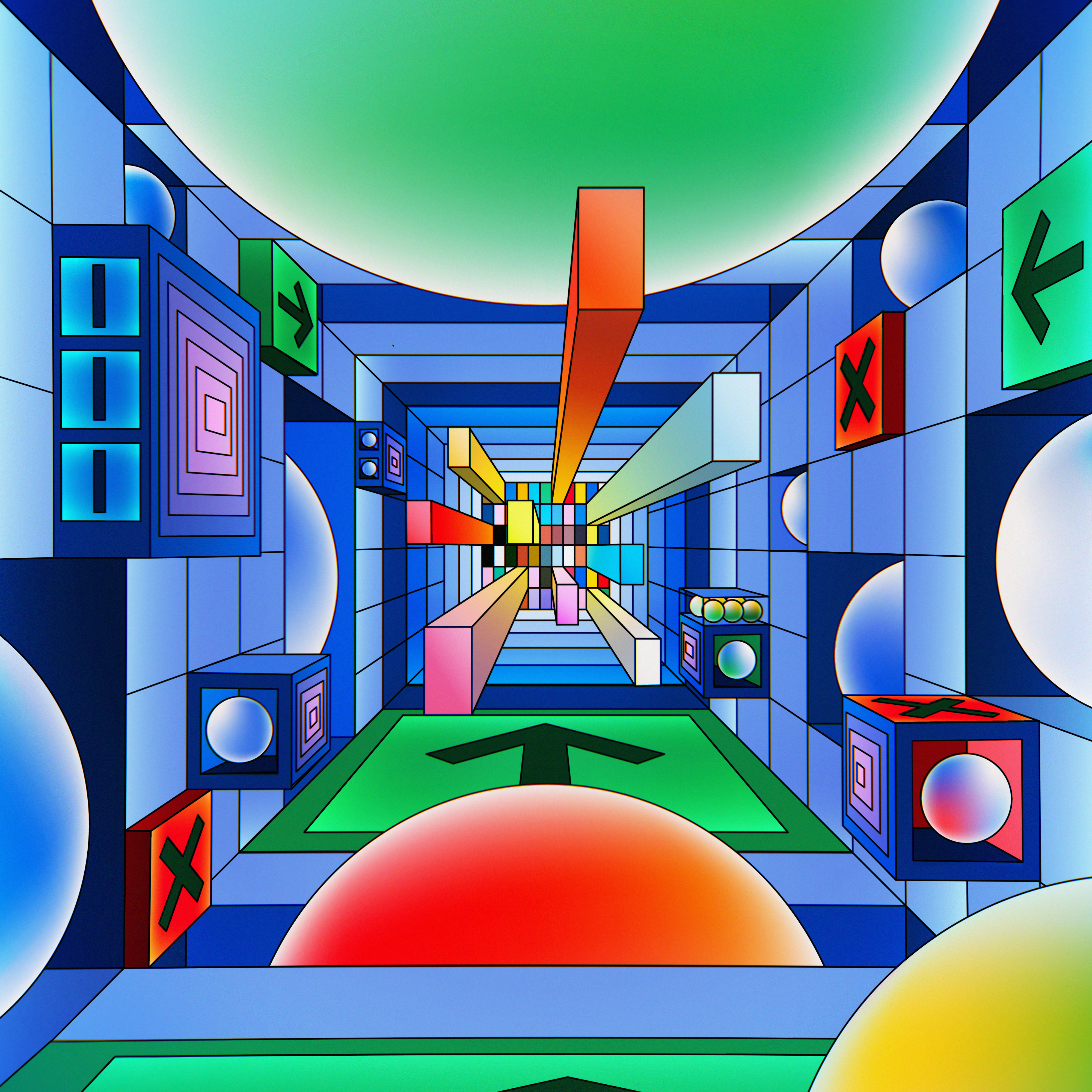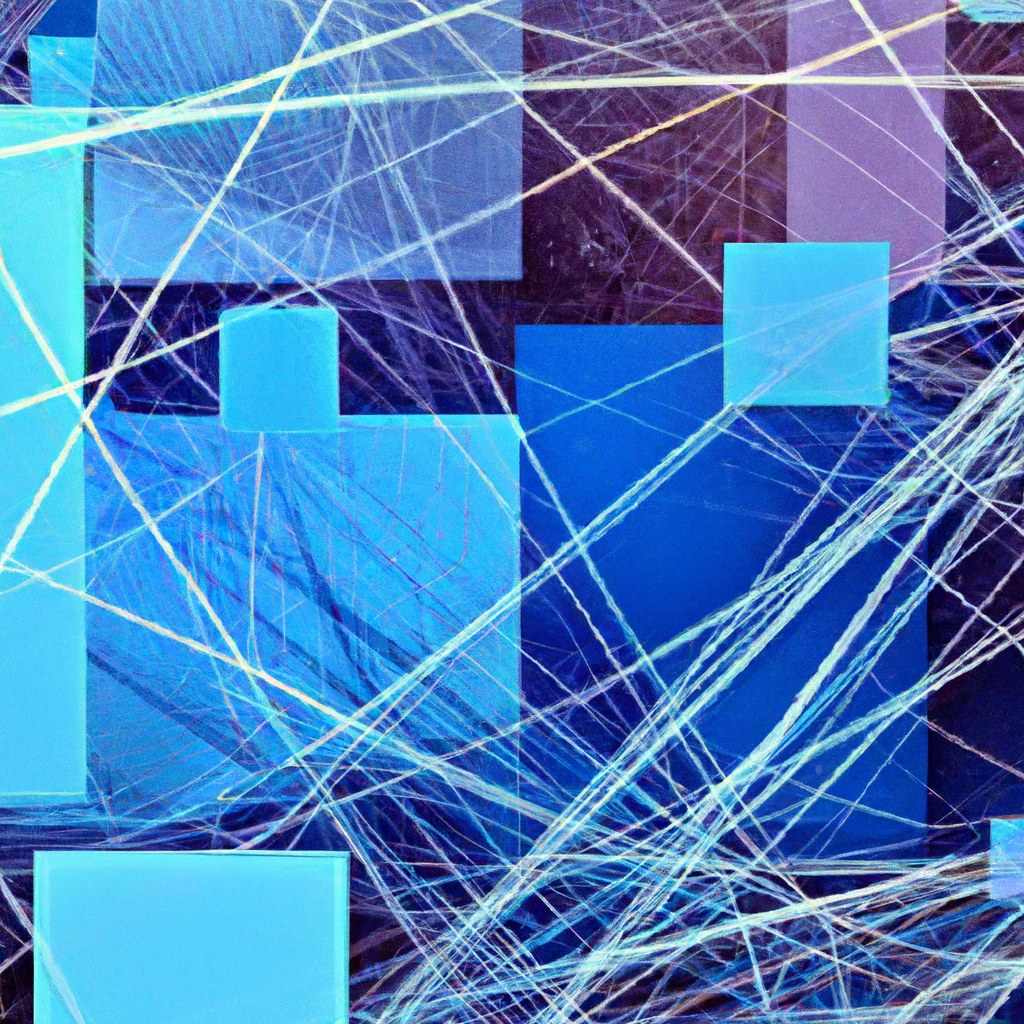In the realm of emerging technologies like artificial intelligence (AI), there is an ongoing debate surrounding the legal protection of AI algorithms. The question at hand is whether these innovative and intelligent algorithms can be patented or copyrighted. As the AI landscape continues to evolve, it becomes increasingly crucial to determine the proper legal framework for this rapidly developing field. Let’s explore this topic together and shed some light on the potential avenues for safeguarding AI algorithms.

Understanding AI Algorithms
Definition of AI algorithms
AI algorithms, also known as artificial intelligence algorithms, are a set of rules and instructions designed to enable machines or computer programs to perform tasks that would typically require human intelligence. These algorithms are used in artificial intelligence systems to analyze, process, and interpret data, learn from experience, and make informed decisions or predictions.
Applications and use of AI algorithms in various industries
AI algorithms have found applications in various industries, revolutionizing the way businesses operate and solving complex problems. In healthcare, AI algorithms are used to diagnose diseases, assist in surgeries, and develop personalized treatment plans. In finance, these algorithms are employed for fraud detection, stock trading, and credit scoring. Additionally, AI algorithms are utilized in transportation and logistics for route optimization and autonomous vehicle navigation. In e-commerce, they help in recommendation systems and improving customer experiences. The potential of AI algorithms extends to virtually every sector, promising to enhance efficiency, productivity, and decision-making processes.
Basics of Intellectual Property
Definition and forms of Intellectual Property
Intellectual Property (IP) refers to the legal rights that protect creations of the mind, such as inventions, artistic works, designs, or symbols used in commerce. It encompasses several distinct forms, including patents, copyrights, trademarks, and trade secrets. These forms exist to offer protection to innovators and creators, encouraging the development and dissemination of new ideas while granting them exclusive rights over their creations for a specified period.
Significance of Intellectual Property in technological innovations
Intellectual Property plays a critical role in technological innovations, providing a framework for inventors and creators to safeguard their groundbreaking discoveries or inventions. It encourages investment in research and development by granting innovators a limited monopoly, enabling them to reap the benefits of their efforts. IP protection fosters innovation, as it provides motivation for individuals or organizations to create and commercialize new technologies, knowing that they will be able to protect their rights and profit from their inventions.
Differentiating Patents from Copyrights
Definition of patents
A patent is a form of Intellectual Property protection granted by a government to an inventor or assignee, giving them exclusive rights over an invention or innovation. It provides a legal monopoly, preventing others from making, using, selling, or importing the patented invention without permission for a specific period. In return for the disclosure of the invention to the public, the patent holder gains a chance to capitalize on their creation and enjoy the fruits of their ingenuity.
Definition of copyrights
Copyright is a form of Intellectual Property protection that grants exclusive rights to authors, creators, or owners of original works, such as literary, artistic, musical, or architectural creations. It provides protection against unauthorized copying, distribution, adaptation, or public performance of the protected work. Copyright protection arises automatically upon the creation of the work, giving the creator the right to determine how it can be used and monetized.
Differences and similarities between patents and copyrights
While both patents and copyrights are forms of Intellectual Property protection, they differ in various aspects. Patents primarily protect novel inventions, giving the patent holder the exclusive right to make, use, sell, or import the invention for a specified period. Copyrights, on the other hand, protect original works of authorship, giving the creator the exclusive right to reproduce, distribute, display, or perform the work. In terms of duration, patents typically have a fixed term, while copyrights usually last for the duration of the creator’s life plus a certain number of years.
Copyright Protection for Software
The extent of copyright protection in software
Copyright protection for software extends to the expression and code of the program, providing rights to the author of the software. The original code or expression is automatically protected upon creation, giving the author the exclusive right to reproduce, distribute, or modify their software. This protection covers both the source code and object code, preventing unauthorized copying, reverse engineering, or distribution of the software.
Limitations of copyright for software
While copyright protection for software exists, it does have certain limitations. Copyright does not protect ideas, algorithms, systems, or functionalities employed in the software. It only safeguards the specific expression or code used to implement those ideas. Additionally, copyright protection cannot prevent individuals from creating independent implementations of the same idea or functionality, as long as they do not directly copy the original code.
Relevance of copyright protection in AI algorithms
Copyright protection plays a crucial role in safeguarding AI algorithms, as the code and expression used to implement these algorithms are considered original works of authorship. It allows creators to protect their specific implementations and prevent others from directly copying or reproducing their algorithms without permission. This protection encourages innovation in the field of AI by ensuring that developers and researchers can reap the benefits of their unique algorithms and incentivizing further advancements in the field.

Patent Protection for AI Algorithms
Possibilities and limitations of patenting AI algorithms
Patenting AI algorithms presents both possibilities and limitations. The patent system provides an avenue for inventors and assignees to protect their AI algorithms by granting them exclusive rights, preventing others from using or commercializing the patented algorithms without permission. However, the patentability of AI algorithms can be challenging due to certain legal requirements. In many jurisdictions, patents are granted to inventions that are considered new, non-obvious, and industrially applicable. Demonstrating these criteria for AI algorithms, which may rely on complex mathematical models or algorithms, can pose difficulties.
Recent examples of AI algorithm patents
In recent years, there have been notable examples of patents granted for AI algorithms. For instance, in 2018, a patent was granted to IBM for an AI algorithm that can generate captions for images, ensuring accessibility for visually impaired users. Google has also received patents for various AI algorithms, including machine learning techniques for speech recognition and natural language processing. These examples highlight the increasing recognition and patent protection granted to AI algorithms as they continue to advance and become key components of various technologies.
Challenges and critique of patenting AI
Patenting AI algorithms raises certain challenges and critiques. Critics argue that granting patents for AI algorithms can impede innovation and hinder progress in the field. They claim that patents may create barriers to entry for smaller companies or individual developers, limiting their ability to build upon existing algorithms and stifling competition. Moreover, the rapidly evolving nature of AI algorithms poses challenges for patent offices in assessing the novelty and non-obviousness of inventions, as well as keeping up with the constantly changing landscape of AI technology.
AI and Copyright Laws
Applicability of copyright laws on AI algorithms
Copyright laws are applicable to AI algorithms, as these algorithms are considered original works of authorship. The code and expression used to implement the algorithms are protected upon creation, granting creators the exclusive rights to reproduce, distribute, or modify their works. Copyright serves as a tool to protect the expression and implementation of AI algorithms, ensuring that creators can control the usage, reproduction, and adaptation of their algorithms.
Challenges in applying copyright law to AI
Applying copyright law to AI algorithms poses several challenges. One primary challenge is determining authorship when AI algorithms generate or create original works. In some cases, it may be difficult to attribute authorship to a human creator when the algorithm autonomously generates content. Additionally, the idea-expression dichotomy in copyright law can be complex when applied to AI algorithms, as determining what parts of the algorithm are subject to copyright protection can be intricate due to the nature of algorithms relying on mathematical models and techniques.
Case studies of AI and copyright disputes
Several case studies demonstrate the complexities of applying copyright law to AI algorithms. For example, in the case of a portrait created by an AI algorithm, questions arise regarding who owns the copyright to the portrait— the human programmer, the AI algorithm, or the owner of the AI algorithm. Similarly, disputes may arise when AI algorithms generate music, literature, or visual art, raising questions about ownership and attribution. These disputes highlight the need for further exploration and analysis of the intersection between AI algorithms and copyright laws.

AI and Patent Laws
Applicability of patent laws on AI algorithms
Patent laws can be applicable to AI algorithms, as they provide protection for novel and non-obvious inventions. AI algorithms that meet the legal criteria of novelty, non-obviousness, and industrial applicability may be eligible for patent protection. Patenting AI algorithms allows inventors or assignees to gain exclusive rights over their inventions, preventing others from using or commercializing the patented algorithms without permission.
Challenges in applying patent law to AI
Applying patent law to AI algorithms presents certain challenges. The patent system relies on the demonstration of novelty and non-obviousness, which can be complex when evaluating AI algorithms. The use of mathematical models, algorithms, or machine learning techniques in AI can make it difficult to establish the inventiveness and contribution to the prior art necessary for patentability. Additionally, the rapidly evolving nature of AI technology poses challenges for the patent system to keep up with the advancements and adequately assess the patentability of AI algorithms.
Case Studies of AI Patents and Copyright Controversies
Google’s ‘PageRank’ algorithm patent
Google’s ‘PageRank’ algorithm, a key component of its search engine, was granted a patent in 2001. The patented algorithm analyzes the links between web pages to determine their relevance and ranking within search results. This patent played a significant role in Google’s dominance in the search engine market and raised challenges concerning the influence of patents on competition and innovation.
Microsoft’s AI writing technology copyright issues
Microsoft faced copyright issues related to its AI writing technology. The company was accused of infringing the copyright of an individual who claimed that the technology used in Microsoft’s AI writing software copied his work. The case highlighted the challenges of determining authorship and copyright ownership in AI-generated works.
IBM’s Watson’s cookbook copyright infringement allegations
IBM’s Watson, an AI system known for its cognitive abilities, faced allegations of copyright infringement over a cookbook it authored. The cookbook, created by analyzing existing recipes and generating new ones, sparked debates over the ownership and copyright of AI-generated works. This case exemplifies the complexities of copyright law when applied to AI algorithms and generated content.

Future of AI Algorithms and Intellectual Property Laws
Predicted changes in IP laws to accommodate AI
As AI algorithms continue to advance and play an increasingly significant role in technology and society, there may be significant changes in intellectual property laws. To address the unique challenges posed by AI, lawmakers and policymakers may introduce amendments or new regulations to ensure appropriate protection and incentivization of AI algorithms. These changes may involve clarifying the standards for patentability and authorship, revisiting the scope of copyright protection, and addressing the impact of AI on traditional notions of intellectual property.
Impact of AI evolution on future patent and copyright disputes
The evolution of AI algorithms will undoubtedly impact future patent and copyright disputes. As AI becomes more autonomous and capable of generating original works independently, questions regarding authorship, attribution, and ownership will become more complex. Patents and copyrights will need to adapt to the changing landscape of AI, addressing the unique challenges posed by AI-generated works and algorithms. Resolving these disputes will require careful consideration and innovative approaches to strike a balance between encouraging innovation and providing adequate protection to creators and inventors.
International Perspectives on AI Algorithms and Intellectual Property
Comparison of IP protections for AI in different countries
Different countries have varying approaches to intellectual property protection for AI algorithms. Some countries, like the United States, grant patent protection to AI algorithms that meet the legal requirements of novelty, non-obviousness, and industrial applicability. Other countries, such as the United Kingdom, extend copyright protection to AI-generated works when there is human input involved. Understanding and comparing the IP protections provided by different countries can be crucial for individuals or entities seeking to navigate and protect their AI algorithms globally.
International treaties and agreements impacting AI copyright and patents
International treaties and agreements also impact intellectual property protection for AI algorithms. Treaties like the Berne Convention for the Protection of Literary and Artistic Works and the Agreement on Trade-Related Aspects of Intellectual Property Rights (TRIPS) establish minimum standards of copyright protection and ensure the recognition of copyright across signatory countries. Additionally, bilateral or multilateral agreements may address issues related to patents and intellectual property in the context of AI technology and algorithms. These agreements aim to promote cooperation and establish harmonized standards for intellectual property protection on a global scale.
In conclusion, understanding AI algorithms and their impact on intellectual property is crucial in the rapidly evolving landscape of technology. AI algorithms have revolutionized various industries, leading to the need for appropriate legal protection. While challenges and debates exist regarding the patenting and copyrighting of AI algorithms, it is evident that intellectual property laws play a significant role in encouraging innovation, protecting creators’ rights, and resolving disputes. As AI continues to evolve, the future of intellectual property laws will need to adapt to accommodate the unique challenges and opportunities posed by AI algorithms, ensuring a balance between protection and innovation on a global scale.











